Those who broke their promises in no position to criticize Iran: Envoy
Iran’s UN envoy lambastes the countries that gave up their pledges under the 2015 nuclear deal between the Islamic Republic and others, for their wrongfully blaming Tehran instead for its rightful remedial nuclear measures.
“Those who broke their promise are the ones who must prove their sincerity and genuine political will. They are the ones who must take hard decisions,” Majid Takht Ravanchi, the country’s permanent representative to the world body, told a United Nations Security Council meeting on Wednesday.
“Therefore, they are not in a position to criticize Iran for taking remedial measures,” he added.
The meeting had been formed to study UN Secretary-General Antonio Guterres’ biannual report on the manner of implementation of the nuclear deal that is officially known as the Joint Comprehensive Plan of Action (JCPOA).
The United States left the JCPOA in 2018 and returned the sanctions that the deal had lifted. It then began scaring other countries into abiding by the illegal and inhumane bans. Washington’s Western allies in the deal—the UK, France, and Germany—bowed under the “maximum pressure” policy by stopping their trade with Tehran in line with the coercive economic measures.
In his report, Guterres urged the US to lift the sanctions. The Wednesday meeting backed underway talks in Vienna that are aimed at potential restoration of the deal after the US sabotage. A few parties, however, focused on the remedial steps that Iran has been taking in the face of the Western allies’ non-commitment.
“Today, the Council’s message is loud and clear: the JCPOA must be implemented and there is no better alternative,” Takht Ravanchi said.
He decried the few “discouraging statements” for “pointing their fingers at the victim instead of demanding the culprit to act responsibly.”
He reminded that Iran started the remedial steps once its policy of “maximum restraint” failed to dissuade the US from its continued pursuance of the pressure policy.
As part of the countermeasures, the Islamic Republic has so far taken its level of uranium enrichment up to 60 percent and stopped exporting its excessive heavy water.
The envoy reminded that Iran’s measures were, as their name indicated, “remedial” in nature and in line with the JCPOA’s paragraph 26 and 36. Those sections provide the country with “the right to cease performing” its commitments “in whole or in part” in case of “a re-introduction or re-imposition of the sanctions.”
Iran’s measures were, meanwhile, neither “inconsistent with our obligations under the NPT (Nuclear Non-Proliferation Treaty) and our safeguards agreement,” he said.
The official also underscored that all the measures were reversible once those of the JCPOA’s members, which were in default of their obligations, resumed their commitment to the deal.
He also warned that the country would not “overlook” the contrarily “irreversible” suffering and losses of life that it incurred as a result of the sanctions.
Takht Ravanchi separately blasted efforts at trying to erroneously link the JCPOA to Iran’s ballistic missile and space programs.
Firstly, Iran’s ballistic missiles are not designed to carry non-conventional warheads, he said, adding, “Iran will not compromise on its security and its conventional defensive capability as no other country does.” Secondly, the JCPOA features no reference to any space launch vehicles that some countries have been trying to turn into the subject of their criticism of the Islamic Republic space activities, the envoy said.
In conclusion, Takht Ravanchi said, “Given years of serious violations of the JCPOA by other sides, it is essential to secure enough assurances that all sanctions are removed verifiably.” The US also had to be rendered incapable of fresh withdrawal from the deal or abuse of its mechanism to create another implementation crisis, he noted.
Hezbollah attacks Israeli forces after Lebanese homes blown up
World leaders, states hail ICC arrest warrants for Netanyahu, Gallant
MP: US accountable for possible Israeli 'foolishness' to attack Iraq
VIDEO | Israeli policies strangle Palestinian agriculture, economy
Iran's president offers condolences to Pakistan over terrorist attack
Canada’s Yukon town council at standstill over refusing oath to King Charles
Yemen's Houthi calls for jihad to protect Palestine against Israel
VIDEO | Internal rifts within Israel


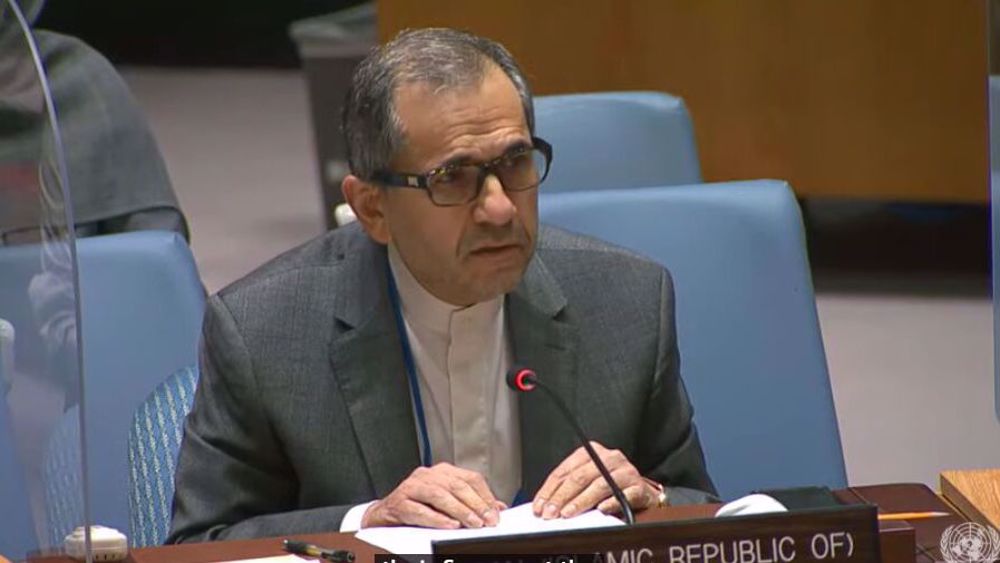
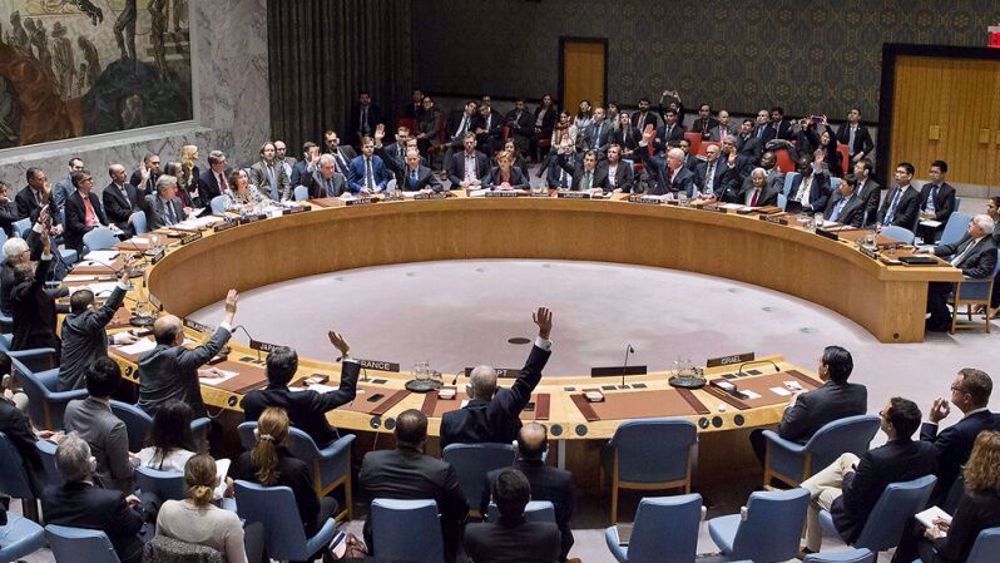
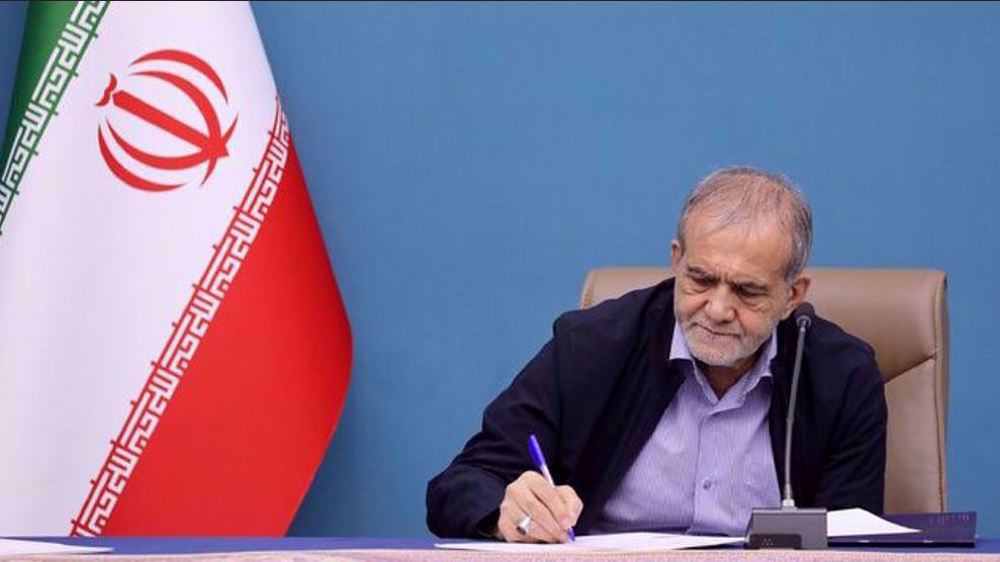
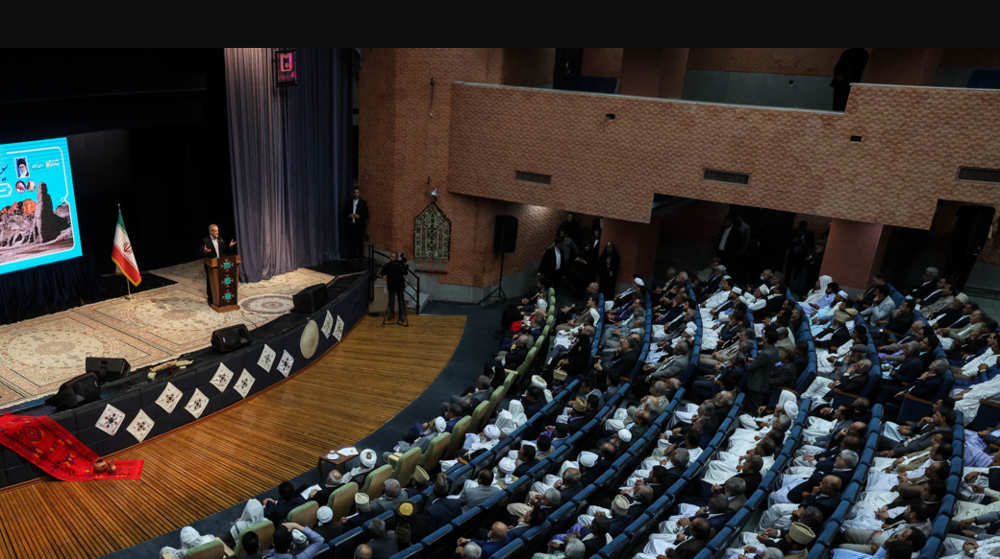
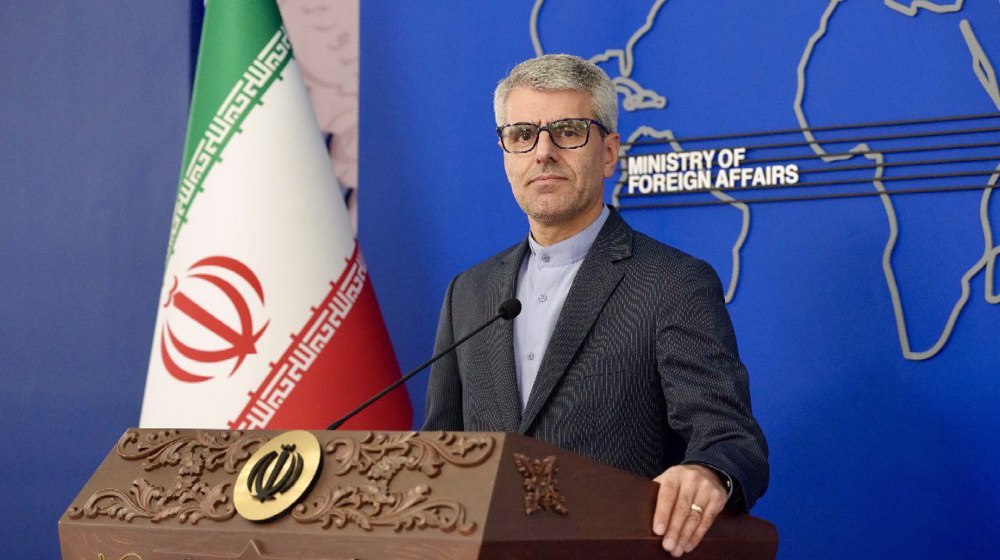




 This makes it easy to access the Press TV website
This makes it easy to access the Press TV website